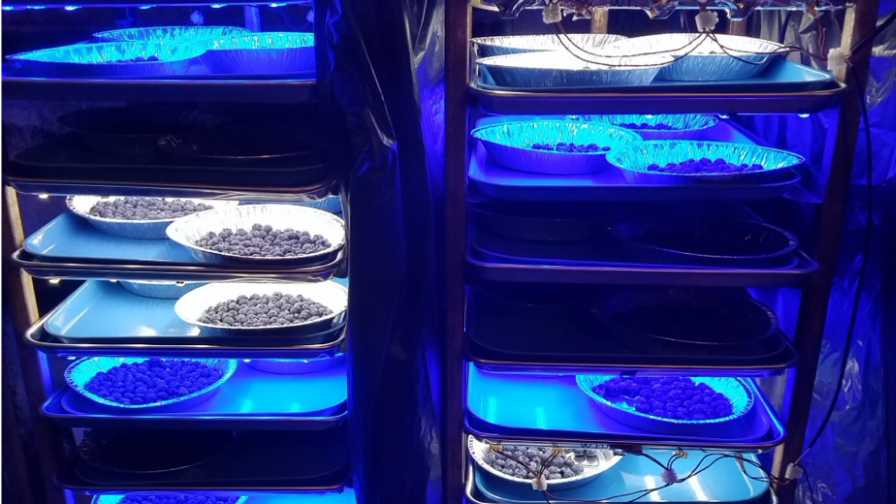Does Blue Light Exposure Help the Quality of Blueberries?

Postharvest blueberries were tested under blue light to determine whether the light affected fruit quality or disease development.
Photo courtesy of University of Georgia CAES
The COVID-19 crisis has put supply chain issues at the forefront of food production and packaging concerns. Researchers at the University of Georgia investigated a potential solution for extending the shelf life of blueberries by exposing blueberries to blue light during storage.
Led by horticulture doctoral candidate Yi-Wen Wang, the study, recently published in the journal Horticulturae, suggested that blue light has no effect on fruit quality or disease development in ripe blueberries during their postharvest cold storage.
The multidisciplinary study was supervised by horticulture faculty member Savithri Nambeesan in collaboration with professors Marc van Iersel and Harald Scherm in UGA’s College of Agricultural and Environmental Sciences (CAES) and previous CAES research assistant Helaina Ludwig.
“Blueberries are a very important crop in Georgia. If we can extend the shelf life of blueberries, then we can help farmers and also consumers to get more fresh and great-tasting blueberries,” says Wang.
The study examined two varieties of blueberries, some hand-harvested and some machine-harvested, under blue light compared to control groups under white light and continuous darkness. Researchers measured blueberry fruit quality using texture, weight, color, and other quality attributes.
The team simultaneously tracked both the natural disease development of berries and a select group inoculated with spore suspension of common blueberry pathogens.
The UGA researchers are the first to test the effect of blue light on blueberry fruit quality. Previous studies exhibited success in using blue light to inhibit the growth of pathogens on citrus. Though the study did not find blue light application as an effective method for quality improvement or fighting pathogens in blueberries, the results did contribute to further blueberry research for Georgia producers and consumers.
For more, continue reading at Newswire.caes.uga.edu.









